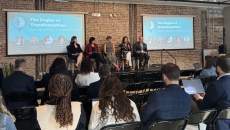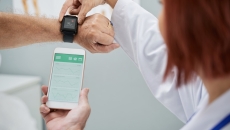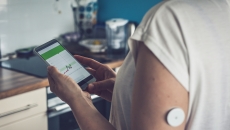Digital Medicine society
At Healthcare 2030 in Washington, D.C., panelists highlighted debated challenges around interoperability, FHIR adoption and the need for industry-wide standards.
At an event in Washington, D.C., on Monday, DiMe released a thesis with what it says are four impact areas that are vital to pursue in digital medicine in the next five years.
A pilot study will collect data from smartphones and wearable technologies to predict opioid relapse.
The course aims to help doctors, researchers and healthcare professionals learn about generative AI and LLMs and how the technology is used in healthcare.
The Playbook: Pediatric Digital Medicine deals with the challenges of pediatric digital health innovation and optimizing care for children.
The collaboration aims to delineate best practices to help streamline the path to commercialization for digital health products.
Ian Miller, program lead at the Digital Medicine Society (DiMe), highlights how digital health offerings can improve access to physical and mental healthcare for children.
Jennifer Goldsack, CEO of the Digital Medicine Society, which cohosts the CancerX initiative, discusses advances in improving cancer care options via digital innovation.
The Digital Medicine Society partnered with digital health and pharma players like the FDA, Janssen, GSK, Medable and THREAD to build a toolkit aimed at improving diversity in digital research.
The toolkits are based on the Digital Medicine Society's Sensor Data Integrations project, which includes organizations like Amazon Web Services, Oracle, the Moffitt Cancer Center, Takeda and the U.S. Department of Veterans Affairs.





